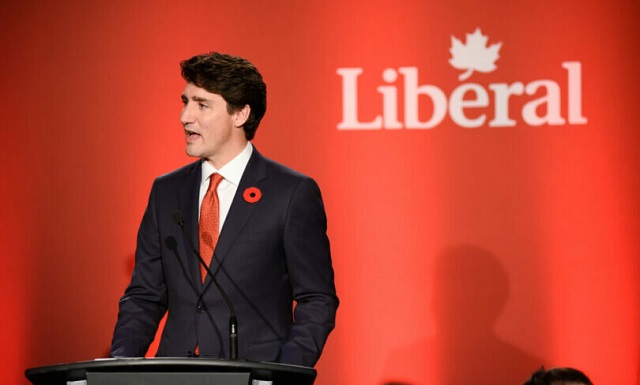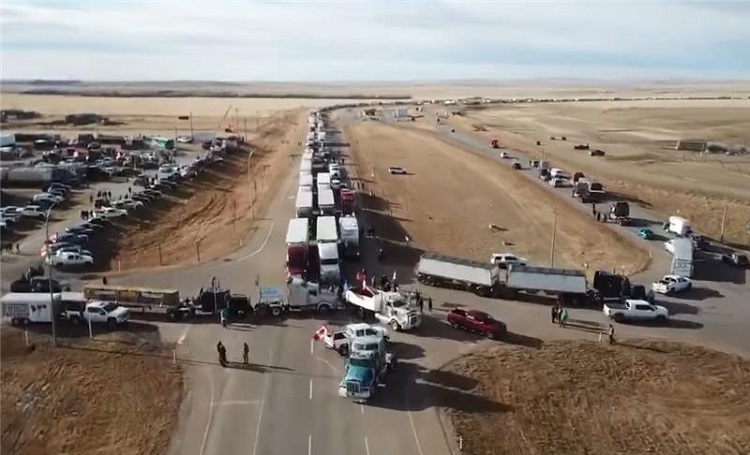Opinion
2019 will be cumulative year for Red Deer, or not?

2019 will be a cumulative year. The Canada Winter Games will have occurred and the provincial and federal elections will have played out.
Federally will see whether the Liberals in Ottawa get a passing grade and a second term or sent to the opposition side, but locally the Conservatives should retain their seats in Red Deer.
The only uncertainty may be if incumbent Earl Dreeshen, retires after turning 65 on July 9 2018. There are rumours that he may retire and our mayor who is learning French as I write this column may contest the Conservative nomination. There are other local, county and other municipal election waiting for Mr. Dreeshen to retire and contest the Conservative nomination and it looks promising.
Who ever ends up as the Conservative candidate in the 2019 federal election, they are not expected to lose. There is no expectation of a cabinet post, currently, if the Conservatives do beat the Liberals, unless a strong candidate is placed before the electorate.
Most of the attention, locally, will be on the provincial election and whether the NDP will be given a second term. There is a lot of interest in the UCP under new leader, Jason Kenney as seen in the media, with the vacating of the seat in Innisfail/Sylvan Lake.
The city of Red deer has 2 NDP MLAs, neither in cabinet and may lose their party’s nominations in their ridings, if contested.
The party could protect their nomination and prevent them from being contested but I do not see that happening. Our local MLAs along with many others were elected on the coattails of Rachel Notley, but that won’t happen in 2019. Premier Notley needs some star candidates, candidates with proven name recognition like former city councillor; Paul Harris to help the NDP retain power.
Provincially we have interest in the Alberta Party and there are rumours of some names interested in running under their new leader and former Health Minister and former Edmonton Mayor Stephen Mendel.
Unfortunately, if the goal is to keep the NDP in government people will vote NDP, but if the goal is to defeat the NDP then the most viable option is the UCP, under our current first-past-the-post electoral process.
The second point of interest is the urbanization of Alberta. The NDP appeals to the more progressive and higher educated voters which are more often found in the larger urban centres like Calgary and Edmonton. Red Deer has reached their plateau in growth and may be inconsequential in the political arena unless there is a star candidate for the governing party.
Declining population, lack of interest by the various governments in our infrastructure, like expanding our hospital, for example gently signifies our irrelevance unless we were to offer strong candidates, “star” candidates if you will.
So when 2019 comes to an end, will we rejoice with fond memories of the Canada Games? Will we have strong representation in Ottawa and Edmonton? Or will it be just another missed opportunity in politics with 2 busy forgettable weeks of sports? I vote for fond memories and strong representation, how about you?
National
Anger towards Trudeau government reaches new high among Canadians: poll

From LifeSiteNews
A recent Nanos research survey found that ‘Pessimism and anger remain the top emotions Canadians say best describe their views of the federal government in Ottawa.’
Canadians’ anger towards Prime Minister Justin Trudeau and his Liberal government has reached a record high, according to a new poll.
According to a national survey published by Nanos Research this month, 31% of Canadians feel anger and pessimism towards the Trudeau government, which marks an all-time low in satisfaction for government leadership.
“Which of the following feelings best describes your views of the federal government in Ottawa?” the poll questioned.
In addition to the 31% feeling angry and pessimistic respectively, 11% feel uninterested, while only 1% and 10% feel satisfaction and optimism, respectively. 6% were unsure of their feelings towards the Trudeau government.
“Feelings of anger toward the federal government have increased or held steady in every region, with the largest increases among residents of Quebec (December: 12%; March: 24%) and Atlantic Canada (December: 21%; March: 38%). Pessimism and anger remain the top emotions Canadians say best describe their views of the federal government in Ottawa,” the research found.
In recent months, Trudeau’s popularity has plummeted, with polls projecting a massive Conservative victory in the upcoming election.
Trudeau’s popularity has been falling and his government has been embroiled in scandal after scandal, one of the latest being a federal court ruling that the prime minister’s use of the Emergencies Act to end the 2022 Freedom Convoy was “not justified.”
Even top Liberal party stalwarts have called for him to resign.
Indeed, Canadians anger and dissatisfaction with Trudeau has become a topic of conversation on many social media platforms, with Canadians detailing how the Trudeau government has made their life less affordable.
Numerous videos are being uploaded to social media by Canadians explaining that they struggling to make ends meet amid the rising cost of living and Trudeau’s ever-increasing carbon tax, while many immigrants are telling others not to come to Canada.
Frontier Centre for Public Policy
Budget 2024 as the eve of 1984 in Canada

From the Frontier Centre for Public Policy
Those who claim there are unmarked burials have painted themselves into a corner. If there are unmarked burials, there have had to be murders because why else would anyone attempt to conceal the deaths?
The Federal Government released its Budget 2024 last week. In addition to hailing a 181% increase in spending on Indigenous priorities since 2016, “Budget 2024 also proposes to provide $5 million over three years, starting in 2025-26, to Crown-Indigenous Relations and Northern Affairs Canada to establish a program to combat Residential School denialism.” Earlier this spring, the government proclaimed:
The government anticipates the Special Interlocutor’s final report and recommendations in spring 2024. This report will support further action towards addressing the harmful legacy of residential schools through a framework relating to federal laws, regulations, policies, and practices surrounding unmarked graves and burials at former residential schools and associated sites. This will include addressing residential school denialism.
Like “Reconciliation,” the exact definition of what the Federal government means by “residential school denialism” is not clear. In this vague definition, there is, of course, a potential for legislating vindictiveness.
What further action is needed to address “the harmful legacy of residential schools” except to enforce a particular narrative about the schools as being only harmful? Is it denialism to point out that many students, such as Tomson Highway and Len Marchand, had positive experiences at the schools and that their successful careers were, in part, made possible by their time in residential school? If the study of history is subordinated to promoting a particular political narrative, is it still history or has it become venal propaganda?
Since the sensational May 27, 2021, claim that 215 children’s remains had been found in a Kamloops orchard, the Trudeau government has been chasing shibboleths. The Kamloops claim remains unsubstantiated to this day in two glaring ways: no names of children missing from the Kamloops IRS (Indian Residential Schools) have been presented and no human remains have been uncovered. For anyone daring to point out this absence of evidence, their reward is being the target of a witch hunt. As we recently witnessed in Quesnel, B.C., to be labeled as a residential school denialist is to be drummed out of civil society.
If we must accept a particular political narrative of the IRS as the history of the IRS, does our freedom of conscience and speech have any meaning?
To the discredit of the Truth and Reconciliation Commission, fictions of missing and murdered children circulating long before the Commission’s inception were subsumed by the TRC (Truth and Reconciliation Commission). Unmarked graves and burials were incorporated into the TRC’s work as probable evidence of foul play. In the end, the TRC found no evidence of any murders committed by any staff against any students throughout the entirety history of the residential schools. Unmarked graves are explained as formerly marked and lawful graves that had since become lost due to neglect and abandonment. Unmarked burials, if they existed, could be construed as evidence of criminal acts, but such burials associated with the schools have never been proven to exist.
Those who claim there are unmarked burials have painted themselves into a corner. If there are unmarked burials, there have had to be murders because why else would anyone attempt to conceal the deaths? If there are thousands of unmarked burials, there are thousands of children who went missing from residential schools. How could thousands of children go missing from schools without even one parent, one teacher, or one Chief coming forward to complain?
There are, of course, neither any missing children nor unmarked burials and the Special Interlocutor told the Senate Committee on Indigenous People: “The children aren’t missing; they’re buried in the cemeteries. They’re missing because the families were never told where they’re buried.”
Is it denialism to repeat or emphasize what the Special Interlocutor testified before a Senate Committee? Is combating residential school denialism really an exercise in policing wrongthink? Like the beleaguered Winston in Orwell’s 1984, it is impossible to keep up with the state’s continual revision of the past, even the recent past.
For instance, the TRC’s massive report contains a chapter on the “Warm Memories” of the IRS. Drawing attention to those positive recollections is now considered “minimizing the harms of residential schools.”
In 1984, the state sought to preserve itself through historical revision and the enforcement of those revisions. In the Trudeau government’s efforts to enforce a revision of the IRS historical record, the state is not being preserved. How could it be if the IRS is now considered to be a colossal genocide? The intent is to preserve the party in government and if it means sending Canada irretrievably down a memory hole as a genocidaire, so be it.
Michael Melanson is a writer and tradesperson in Winnipeg.
-

 Business1 day ago
Business1 day agoDon’t be fooled by high-speed rail
-

 Addictions1 day ago
Addictions1 day agoBritish Columbia should allow addicts to possess even more drugs, federal report suggests
-

 Business1 day ago
Business1 day agoUN plastics plans are unscientific and unrealistic
-

 Alberta1 day ago
Alberta1 day agoAlberta rejects unconstitutional cap on plastic production
-

 Censorship Industrial Complex1 day ago
Censorship Industrial Complex1 day agoAustralian politicians attack Elon Musk for refusing to remove video of Orthodox bishop’s stabbing
-

 Business1 day ago
Business1 day agoTaxpayers criticize Trudeau and Ford for Honda deal
-

 Also Interesting1 day ago
Also Interesting1 day agoIs the Anger Toward Fiat Currency Justified?
-

 Alberta1 day ago
Alberta1 day agoActivity-Based Hospital Funding in Alberta: Insights from Quebec and Australia





